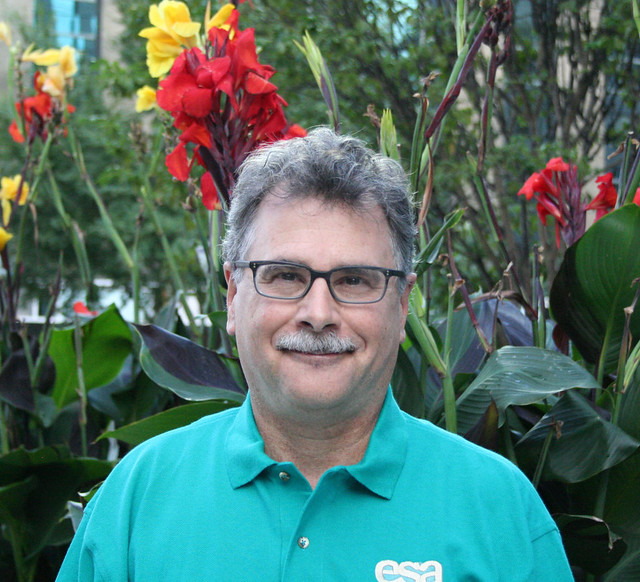Richard Pouyat, former White House science and technology advisor and current president of the Ecological Society of America, speaking at Auburn Oct. 17
Article body
Auburn University’s Weaver Lecture Series will present a talk by Richard Pouyat, renowned scientist and national policy advisor, on Wednesday, Oct. 17, at 3 p.m., immediately followed by a graduate research symposium and reception at 4:15 p.m. at the School of Forestry and Wildlife Sciences.
His lecture, “Integrating Science and Policy for Environmental Decision Making,” will cover the critically important roles scientific information and the scientific community can play in the policy development process, including issue identification, monitoring and evaluation.
The free seminar, which is open to the public and all members of the campus community, will be held in the conference hall, room 1101, on the first floor of the School of Forestry and Wildlife Sciences Building at 602 Duncan Drive, Auburn, Alabama. Afterward, the graduate research symposium will highlight the diversity of the school’s research program and provide graduate students the opportunity to present their research to stakeholders and members of the academic community.
Pouyat, a national program leader for the USDA Forest Service’s Air and Soil Quality Research program in Washington, D.C., is a former White House Office of Science and Technology advisor and the current president of the Ecological Society of America.
He received his doctorate in ecology from Rutgers University and a master’s degree in forest soils and bachelor’s degree in forest biology at the College of Environmental Science and Forestry. His training in ecology, soil science and biogeochemistry to investigate urban ecosystems and the effect of urban sprawl on natural systems is extensive.
Pouyat’s career and research have focused on applying ecological and social sciences to the solutions of contemporary problems in natural resource management and policy.
“Dr. Pouyat’s breadth of experience enables him to provide an informed perspective regarding the conflicts and balance between science and politics at the national level,” said School of Forestry and Wildlife Sciences Dean Janaki Alavalapati.
“Gauging this balance is critical for advancing science while addressing societal challenges, such as climate variability and increased pressure on natural resources.”
Prior to his current roles, Pouyat served as an original co-principal investigator of the Baltimore Ecosystem Study, a Long Term Ecological Research site funded by the National Science Foundation.
Auburn’s Weaver Lecture Series was established in 1996 through an endowment provided by Earl H. and Sandra H. Weaver. The objective is to bring experts in various research areas relevant to forestry and wildlife sciences to the Auburn campus to enhance the school’s academic programs through public lectures and interaction with faculty and students.
For full details about the seminar, visit http://sfws.auburn.edu/event/weaver_lecture_richard_pouyat/.
Related Media
Media interested in this story can contact Communications Director Preston Sparks at (334) 844-9999 or preston.sparks@auburn.edu.
Auburn University is a nationally ranked land grant institution recognized for its commitment to world-class scholarship, interdisciplinary research with an elite, top-tier Carnegie R1 classification, life-changing outreach with Carnegie’s Community Engagement designation and an undergraduate education experience second to none. Auburn is home to more than 30,000 students, and its faculty and research partners collaborate to develop and deliver meaningful scholarship, science and technology-based advancements that meet pressing regional, national and global needs. Auburn’s commitment to active student engagement, professional success and public/private partnership drives a growing reputation for outreach and extension that delivers broad economic, health and societal impact.





